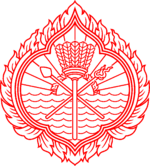Kina Script: Difference between revisions
Jump to navigation
Jump to search
No edit summary |
m (The Kingdom of Kapuku moved page Kapukan Alphabet to Kina Script) |
||
| (4 intermediate revisions by the same user not shown) | |||
| Line 1: | Line 1: | ||
The ''' | The '''Kina script''' is the writing system primarily used in [[Kapuku]]. The writing system was developed in the 1600 and 1700s by both [[Zhenia|Zhenian]] and [[Kapuku|Kapukan]] schollars to give the people of [[Kapuku]] a writing system to keep track of trade and collect information, as well as translate [[Zhenia|Zhenian]] religious texts. The writing system is heavily influenced by [[Zhenia|Zhenian]] script. | ||
==Letters== | ==Letters== | ||
The Kapukan Alphabet contains a total of 13 letters. The alphabet contains | The Kapukan Alphabet contains a total of 13 letters. The alphabet contains 5 vowles (ㅏ,ㅔ,ㅣ,ㅜ, and ㅗ) and 8 consonants (ㅎ,ㅋ,ㄹ,ㅁ,ㄴ,ㅍ,ㅘ, and ㅇ). The letters are almost identical to [[Zhenian language|Zhenian Script]] but instead of the components being put together in blocks, they are strung together. | ||
{| class="IPA wikitable" style="text-align: center" | {| class="IPA wikitable" style="text-align: center" | ||
|- | |- | ||
! Letter | ! Letter !! {{wp|International Phonetic Alphabet|IPA}} | ||
|- | |- | ||
| | | ㅏ || /a/ | ||
|- | |- | ||
| | | ㅔ || /e/ | ||
|- | |- | ||
| | | ㅣ || /i/ | ||
|- | |- | ||
| | | ㅗ || /o/ | ||
|- | |- | ||
| | | ㅜ || /u/ | ||
|- | |- | ||
| | | ㅎ || /h/ | ||
|- | |- | ||
| | | ㅋ || /k ~ t/ | ||
|- | |- | ||
| | | ㄹ || /l ~ ɾ ~ ɹ/ | ||
|- | |- | ||
| | | ㅁ || /m/ | ||
|- | |- | ||
| | | ㄴ || /n/ | ||
|- | |- | ||
| | | ㅍ || /p/ | ||
|- | |- | ||
| | | ㅘ || /w ~ v/ | ||
|- | |- | ||
| | | ㅇ || IPAalink|/ʔ/ | ||
|} | |} | ||
</div> | </div> | ||
Latest revision as of 00:43, 15 April 2020
The Kina script is the writing system primarily used in Kapuku. The writing system was developed in the 1600 and 1700s by both Zhenian and Kapukan schollars to give the people of Kapuku a writing system to keep track of trade and collect information, as well as translate Zhenian religious texts. The writing system is heavily influenced by Zhenian script.
Letters
The Kapukan Alphabet contains a total of 13 letters. The alphabet contains 5 vowles (ㅏ,ㅔ,ㅣ,ㅜ, and ㅗ) and 8 consonants (ㅎ,ㅋ,ㄹ,ㅁ,ㄴ,ㅍ,ㅘ, and ㅇ). The letters are almost identical to Zhenian Script but instead of the components being put together in blocks, they are strung together.
| Letter | IPA |
|---|---|
| ㅏ | /a/ |
| ㅔ | /e/ |
| ㅣ | /i/ |
| ㅗ | /o/ |
| ㅜ | /u/ |
| ㅎ | /h/ |
| ㅋ | /k ~ t/ |
| ㄹ | /l ~ ɾ ~ ɹ/ |
| ㅁ | /m/ |
| ㄴ | /n/ |
| ㅍ | /p/ |
| ㅘ | /w ~ v/ |
| ㅇ | /ʔ/ |

